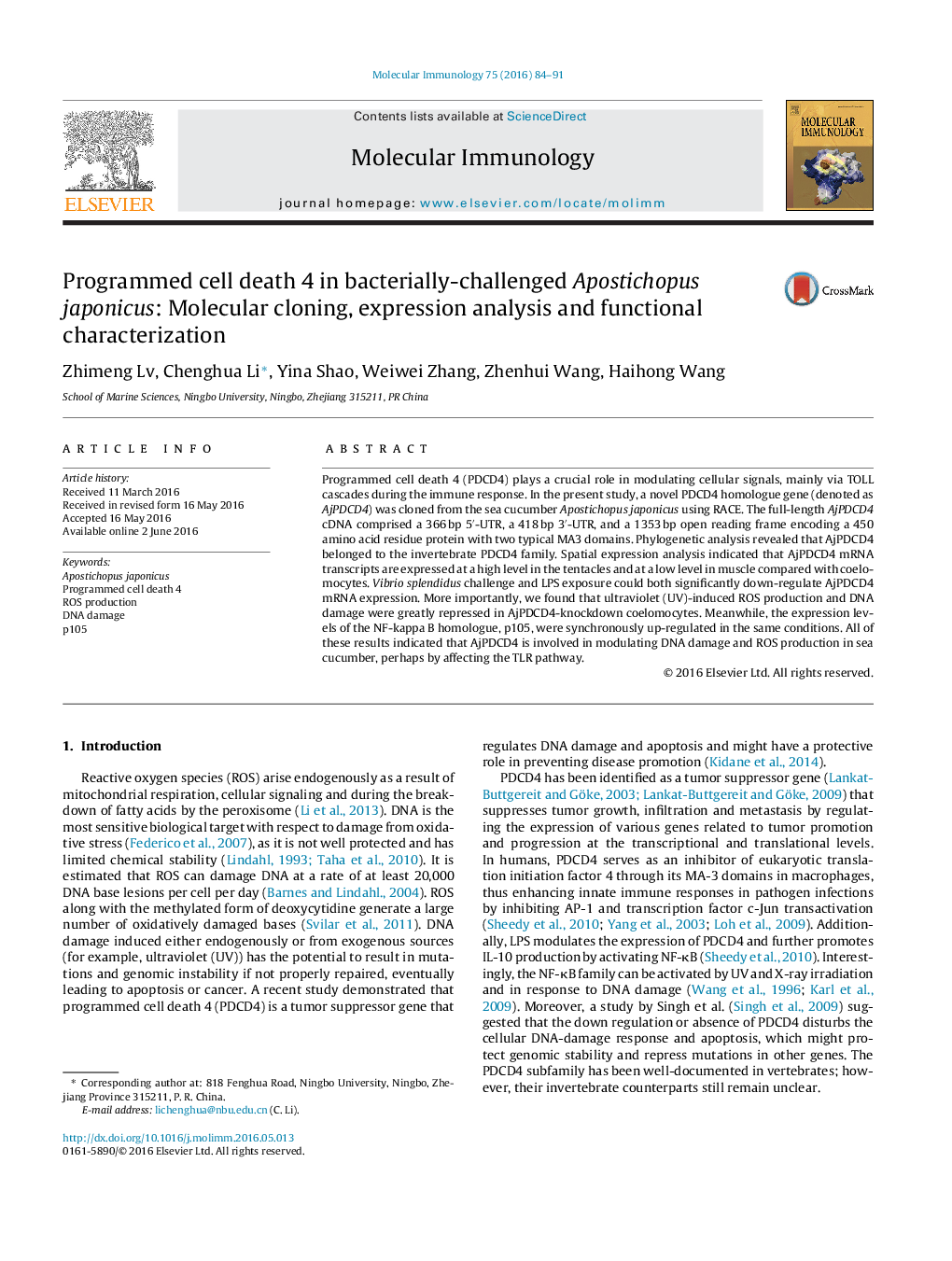| Article ID | Journal | Published Year | Pages | File Type |
|---|---|---|---|---|
| 5916351 | Molecular Immunology | 2016 | 8 Pages |
â¢A novel PDCD4 homology were identified firstly in Apostichopus japonicus.â¢AjPDCD4 were ubiquitously expressed in all examined tissues.â¢The pathogen challenge and LPS stimulation could both significantly down-regulate AjPDCD4 expression.â¢UV-induced DNA damage was markedly depressed after AjPDCD4 knock-down.â¢Silencing the AjPDCD4 was also depressed the ROS production in the cultured coelomocytes.â¢The expression level of AjPDCD4 was tightly correlated with Ajp105 expression.
Programmed cell death 4 (PDCD4) plays a crucial role in modulating cellular signals, mainly via TOLL cascades during the immune response. In the present study, a novel PDCD4 homologue gene (denoted as AjPDCD4) was cloned from the sea cucumber Apostichopus japonicus using RACE. The full-length AjPDCD4 cDNA comprised a 366 bp 5ʹ-UTR, a 418 bp 3ʹ-UTR, and a 1353 bp open reading frame encoding a 450 amino acid residue protein with two typical MA3 domains. Phylogenetic analysis revealed that AjPDCD4 belonged to the invertebrate PDCD4 family. Spatial expression analysis indicated that AjPDCD4 mRNA transcripts are expressed at a high level in the tentacles and at a low level in muscle compared with coelomocytes. Vibrio splendidus challenge and LPS exposure could both significantly down-regulate AjPDCD4 mRNA expression. More importantly, we found that ultraviolet (UV)-induced ROS production and DNA damage were greatly repressed in AjPDCD4-knockdown coelomocytes. Meanwhile, the expression levels of the NF-kappa B homologue, p105, were synchronously up-regulated in the same conditions. All of these results indicated that AjPDCD4 is involved in modulating DNA damage and ROS production in sea cucumber, perhaps by affecting the TLR pathway.
